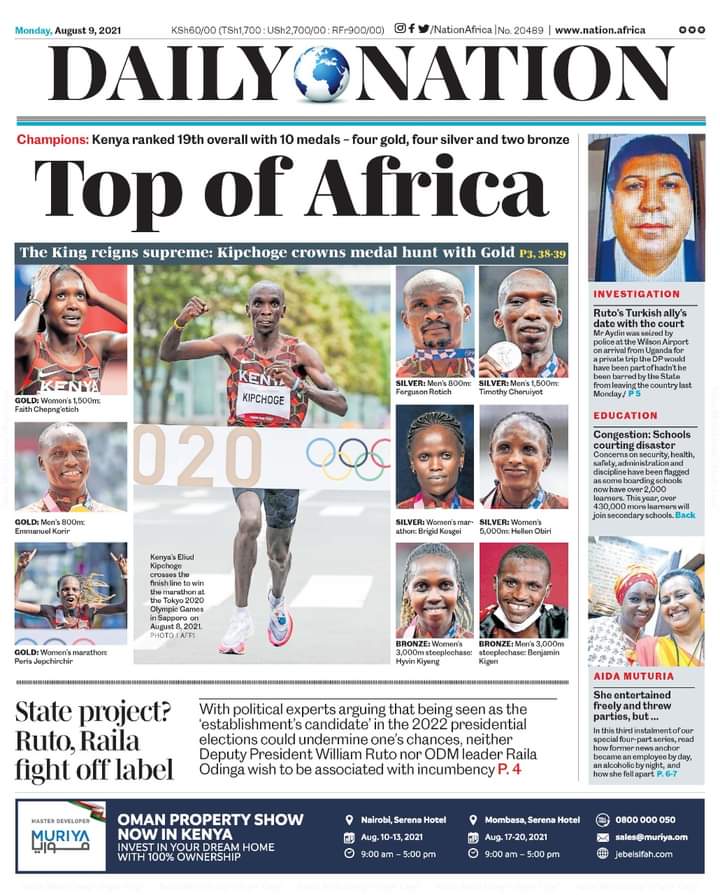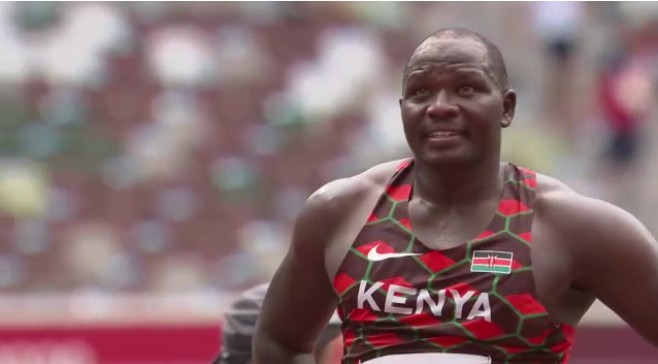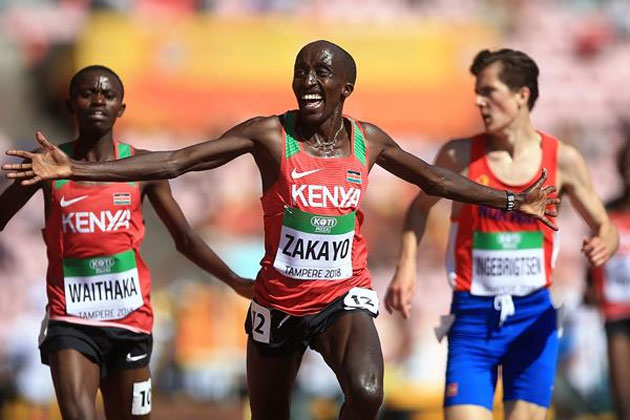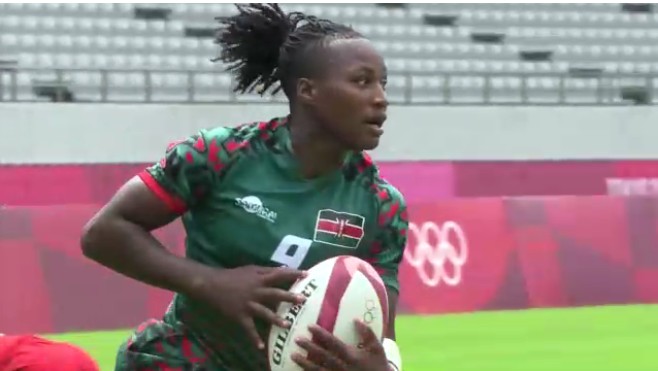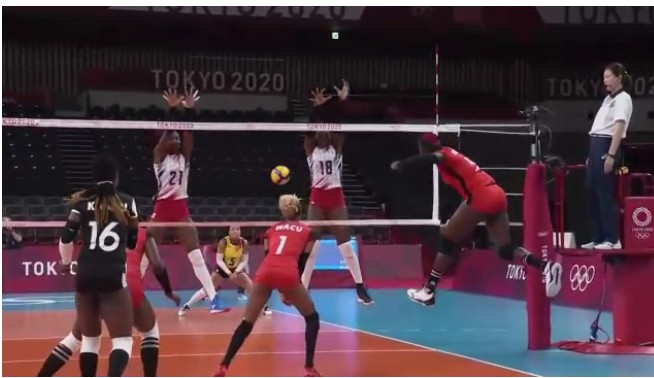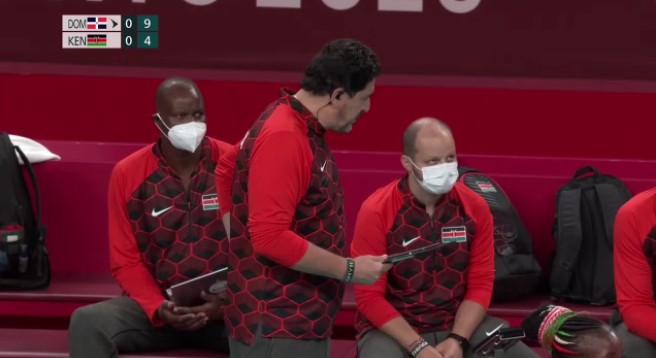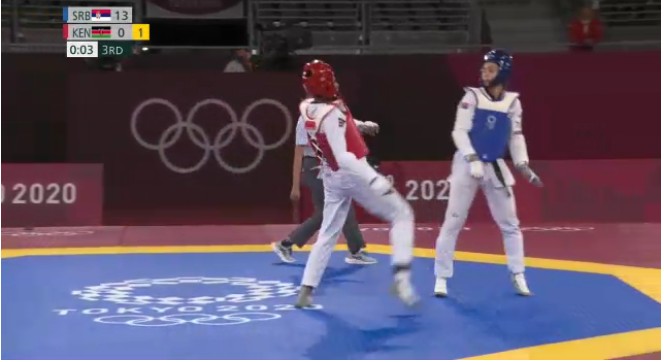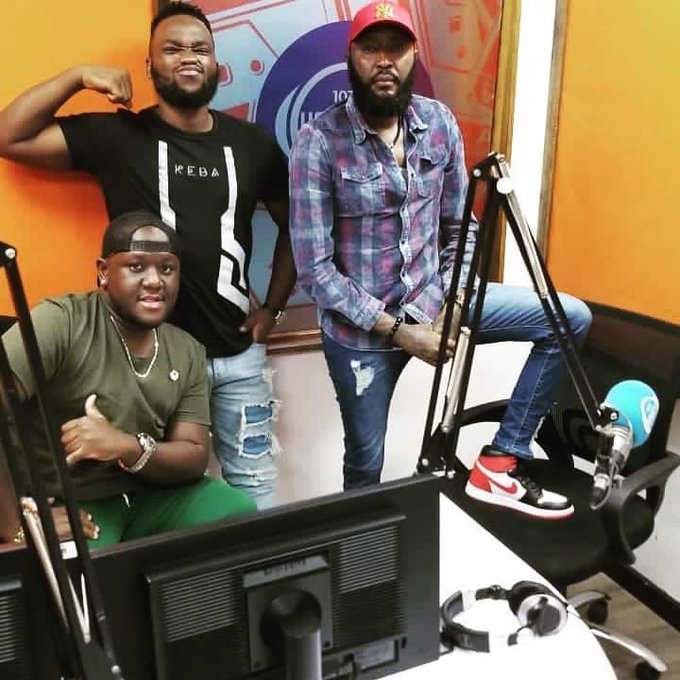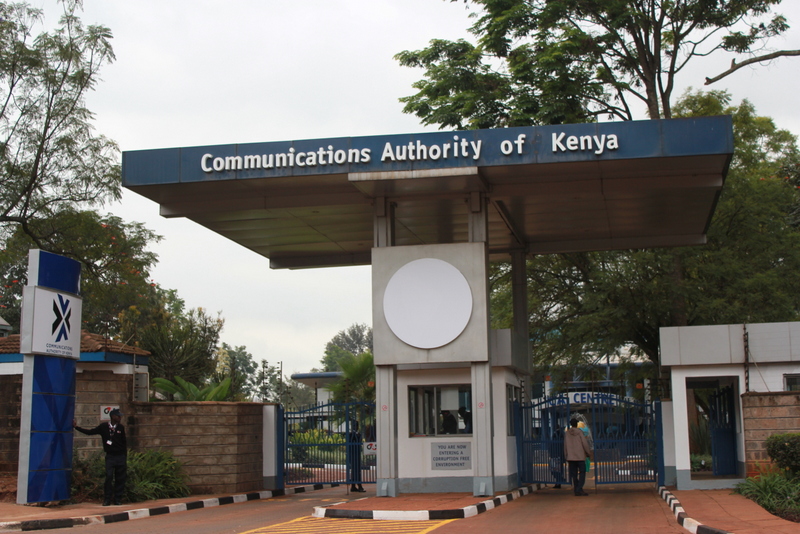Top of Africa screams the headline. It is a rare day when the endless noise of Kenyan politics is not the main story in Kenyan media.
Team Kenya with 4 golds, 4 silvers and 2 bronze is the best ranked nation in Africa on the medal standings at the conclusion of the Tokyo 2020 Olympics.
Due to this achievement, sports which is rarely taken serious in Kenya – whether in the newsroom, in the corporate world, by the national or county governments or even by the Kenyan public – gets it’s once-in-every four years moment to briefly shine before it is once again ignored.
What do you think of the performance of Team Kenya at the Olympics is a question that I was asked a lot since the start of the Games.
Given that the athletics program started on the second week of the Olympics and Kenyans were impatient for wins early on, a narrative was born and it stuck that Team Kenya preparations were poor, the team sent to Tokyo was bad, heck there was even fake news about the number of officials accompanying the team.
The National Olympics Committee of Kenya (NOC-K) which is the body mandated by the International Olympics Committee (IOC) to run Olympics related matters in the country delivered in its job.
There was no issue of kits being stolen or allowances not being given to sportspeople as has been the norm in past Olympics. This was alleged to have happened during the last Olympics held in Rio in 2016 resulting in those in-charge being arraigned in court. It is a testament to the slow nature of Kenya’s wheels of justice that the Rio case that involves among others former Sports minister Dr. Hassan Wario is still dragging on in court.
Additionally, with it being a pandemic year, NOC-K ensured the sportspeople heading to Tokyo were put in training bubbles. Luckily no Kenyan heading for the Olympics tested positive for Covid before or during the games.
To boost performance in Tokyo, Team Kenya was even accompanied by a sports psychologist, a sports scientist, a strength and conditioning coach and a nutritionist.
So NOC-K under legendary athlete Paul Tergat did its work with the sportspeople it was given.
Still under NOC-K it is fair to celebrate the fact that Kenyan rugby legend Humphrey Kayange under the recommendation of the IOC President Thomas Bach was appointed to be a member of the IOC Athlete Commission.
*
The mandate of preparing, qualifying and selecting sportspeople to represent Kenya at the Olympics falls under the specific national federations.
Only after a sports person has qualified for the Olympics does NOC-K get involved. Therefore, the biggest responsibility regarding performance falls on the national federations.
Now to answer the question about performance let’s tackle each sports on its own.
Athletics:
Athletics is the cornerstone of Kenya’s sporting dominance and the Olympics is no different.
Since 1964 independent Kenya has participated in 13 Olympics (there were boycotts in 1976 and 1980) and bagged a total of 35 gold medals. All the golds apart from 1 have come from athletics.
Tokyo 2020 was no different with athletics delivering all the 4 gold medals Kenya won.
Of the 4 golds, 2 were in the marathons with track victory only in 1500m women’s and 800m men’s races.
For awhile now Kenya’s athletics dominance has been taken for granted. However, Athletics Kenya which is the federation that runs the sport in the country has to wake up and smell the coffee before it is too late.
Men’s 3000m steeplechase race has traditionally been Kenya’s race. Since the first win during the 1968 Olympics by Amos Biwott, a Kenyan has won the steeplechase gold in every Olympics Kenya has participated. In Tokyo 2020 Kenya lost her steeplechase crown managing only bronze.
Kenya has only ever won the Olympics men’s 10000m race once when Naftali Temu was victorious in 1968 in Mexico City. 11 attempts later and Kenya has been unable to solve this puzzle. The Olympics women’s 10,000m was introduced in 1988 and no Kenyan woman has ever won gold.
In the Olympics 5000m race only John Ngugi (1988) and Vivian Cheruiyot (2016) have ever won gold for Kenya.
In Tokyo, Hellen Obiri was fourth in the women’s 10k and she bagged silver in the women’s 5k. While for the men Nicholas Kimeli was fourth in 5k and Rodgers Kwemoi in 7th was best placed Kenyan in 10k.
Part of the problem has been that Kenyan 5,000m and 10,000m athletes opt to switch to road (marathon) running very early and not after a long successful career on the track. There is more money in road running and as athletes run to make money their choice is obvious. It is up to AK to figure out what Ethiopia, Uganda and even America are doing right.
In the middle distances – 800m and 1500m – it’s a mix of hope and despair.
Men’s 800m transition seems to have been managed well. The absence of David Rudisha was not felt as America-based Emmanuel Korir won gold and Ferguson Rotich took silver in Tokyo.
Women’s 800m transition looks shaky. With the end of the era that had Eunice Sum, Janeth Jepkosgei and Pamela Jelimo, Kenya had no representation in the Tokyo final won by 19 year old American and in which a 19 year old Briton took silver.
Timothy Cheruiyot won silver in the men’s 1500m after poor tactics in the final but the emergence of Abel Kipsang who set an Olympic record in the semifinals before placing fourth in the final shows there is current and future potential.
In the women’s 1500m, Faith Kipyegon defended her Rio Olympics gold. That is the great news. The bad news is there does not seem to be another Faith bubbling under ready to take over the mantle.
The sprints – 100m, 200m, 400m and relays – have never been taken seriously by Athletics Kenya. While the middle and long distance running is all about talent and little expert input, the sprints require financial input which AK opts not to do.
Sprinter Ferdinand Omanyala made it to the final of the 100m men’s race setting the national record twice in Tokyo which was great.
However, there was a cloud of doping hanging over the Kenyan sprint success as 100m sprinter Mark Otieno tested positive for a banned substance and could not compete in Tokyo. Incidentally, Omanyala had previously served a ban for a doping violation.
In men’s javelin despite Julius Yego throwing his season best of 77.34m he did not get to the final. Remember he threw a massive 92.72m in 2015 Beijing Worlds to win gold and 88.24m in 2016 Rio Olympics to bag silver.
Seems to be an end of an era with no immediate successor in sight.
Overall, my take home from athletics in Tokyo is Uganda has joined Ethiopia as credible opponents and Kenya has to do more to protect its turf and legacy. The days of just showing up and winning are over.
With teenagers and 20 year olds winning athletics golds for their countries at the Olympics, Athletics Kenya has to ask itself whether the pipeline of Kenyan athletics talent has been punctured.
The country hosted a very successful and well-attended World Under 18 athletics championships in 2017. This led to Nairobi winning the bid to host the World Under 20 athletics championships in 2020 that was pushed to 2021 due to Covid-19.
But Kenya does not seem to have reaped rewards of hosting the age-grade athletics championships to identify young talent to bolster the seniors ranks. What happened to Edward Zakayo, George Manangoi, Jackline Wambui and Carren Chebet all who won gold for Kenya at the 2017 World-U18 in Kasarani? Only Mary Moraa who narrowly missed a spot in the final of the Olympics women’s 800m final seems to have emerged as a young red hot talent for Kenya.
Aside from more intensive talent identification and nurturing, training and coaching of Kenyan athletes has to get modernized.
Sports infrastructure (stadia) in Kenya has to be sorted out urgently as athletes should not be worrying about where to train. The main facility in Eldoret – Kipchoge Keino stadium – has been under renovation since 2016.
The doping menace also has to be stamped out. Additionally Athletics Kenya should have a coherent rule book regarding an athlete who has served a doping ban representing Kenya.
Clearly there is potential to diversify and win medals in sprints and in field events but success requires Athletics Kenya to invest heavily and constantly and not just depend on an athlete to train via YouTube and achieve success.
Athletics Kenya elections is a conversation that needs to happen with fresh blood needed at Riadha House.
Boxing:
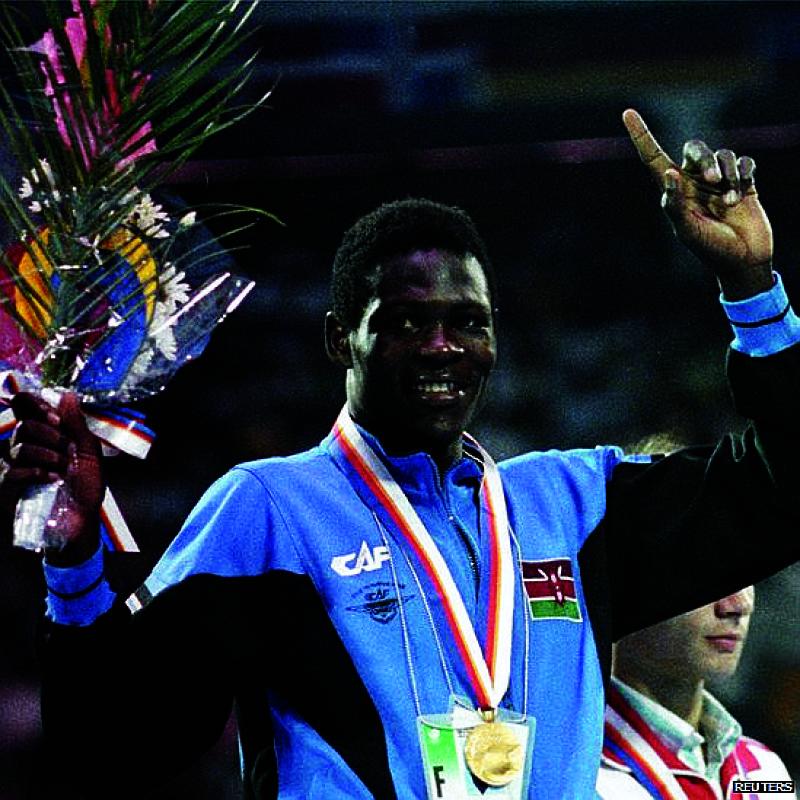
Boxing has the honour of winning 1 out of the 35 gold medals Kenya has ever won at an Olympics. Robert Wangila Napunyi won the gold during the Seoul Olympics in 1988.
This was the climax of the Hit Squad performing well at the Olympics that began with Philip Waruinge winning featherweight bronze in Mexico City in 1968 and upgrading to silver in 1972 in Munich.
Since then the Hit Squad – which is the name of the Kenyan boxing team – has been taking hits.
In Tokyo 2020 all the 4 reps lost their in first bouts. From the thrashing the boxers got the level of Kenyan boxing is sub-standard.
Coaching and training, needs to be upgraded to embrace modern rules so as to eliminate constant complaints about robbed victories. The league also should being revitalized and the dormant clubs awakened to tap new talent from the hordes of unemployed youth.
The Boxing Federation of Kenya clearly has its work cut out.
Rugby sevens:
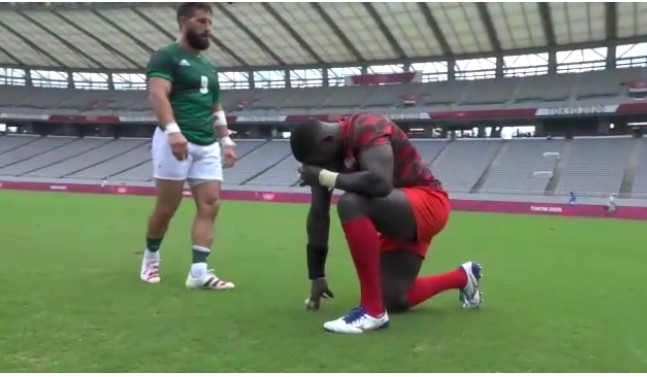
Rugby sevens was introduced to the Olympics in 2016 with Kenyan rugby legend Humphrey Kayange instrumental as an ambassador in the sport’s bid for Olympic status.
The national sevens men’s team Shujaa has performed poorly at the Olympics. Shujaa finished 11th in Rio and only went one better to finish 10th out of 12 in Tokyo.
This is disappointing given the huge potential. The probable next step in this familiar script is a change of coach, and player exits, retirements. One wonders if root problems will ever be addressed and a solid plan formed.
Over the years the success of Kenya sevens has glossed over the problems at Kenya Rugby Union. With Shujaa performance dropping, the facade of Kenyan rugby success is unraveling.
The Kenyan Rugby story has sad echoes of Kenyan cricket which reached the peaks of a semifinal berth in the Cricket World Cup before crashing down to oblivion. Hopefully history will not be repeated.
In the Women’s 7s rugby Kenya was represented by the Lionesses who finished 10th out of 12 after playing with a lot of heart.
This despite Covid protocol challenges where half the team had to quarantine in Tokyo until just before the start of competition after sharing a flight with someone who tested positive.
The ladies need more support and they will achieve just as much as the men’s sevens national team has.
Volleyball:
After a 16 year absence the national women’s volleyball team qualified for the Olympics Indoor Volleyball.
The Malkia Strikers lost 5 out of 5 matches and won zero sets. The African champions showed potential and played with a lot of joy.
Sharon Chepchumba, Leonida Kasaya and captain Mercy Moim stood out and one hopes they secure professional playing contracts abroad.
Curious how Kenyan coach Paul Bitok who engineered the return to Olympics was demoted to assistant coach and a group of Brazilian coaches initially seconded to the team as technical advisors were promoted to the head coach as well as team manager.
With the upcoming retirement of the long-time chair, the Kenya Volleyball Federation needs fresh blood and hopefully former volleyballers get into sports administration.
For the first time Kenya qualified for Women’s Beach volleyball. The team lost 4 out of 4 matches and won 0 sets. However there is potential, there is sand and for starters Coastal county governments should take up this sport.
Taekwondo:
Faith Ogallo was sole representative. She lost in her first match where she could not score a point losing 13-0.
Her technical skills were totally lacking but you could not blame her as much of Kenyan taekwondo is individual effort and just her qualifying for the Olympics was a huge accomplishment.
Swimming:
Emily Muteti placed 43 out of 81 in women’s 50m freestyle heats while Danilo Rosafio placed 56 out of 70 in the men’s 100m freestyle heats.
Both swimmers got wildcards to participate in Tokyo from the international swimming body. They are arguably the best in the country with the fact that their swimming exploits are financed by their parents playing a huge part.
Unfortunately, Kenyan swimming drowned long ago with wrangles in Kenya Swimming Federation the norm.
*
With the Tokyo Olympics done and dusted it will be interesting to read the official report that will be prepared by the National Olympics Committee of Kenya.
While NOC-K and even the Sports ministry may have done a fairly good job at managing the Tokyo Olympics team there is pause for concern regarding management of sports in the country by the various sports federations.
Case in point is that Archery, Judo, Weightlifting representation which was present in Rio 2016 was missing in Tokyo 2020.
Over the years, Kenya has also had Olympics representation in Shooting, Hockey, Wrestling, Weightlifting, Cycling and Rowing.
It is a shame that now most of these sports do not have a functional league or even a functional federation.
Globally sports has proven to be a big industry that generates billions of dollars.
Given Kenyan sports peoples’ raw talent that enables the constant success, just imagine if Kenya took sports seriously the amount of money and employment to Kenyan youth that this industry would generate.
